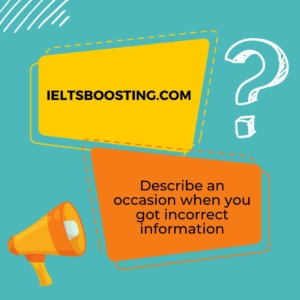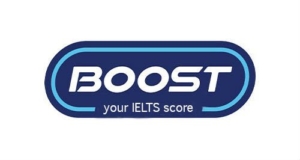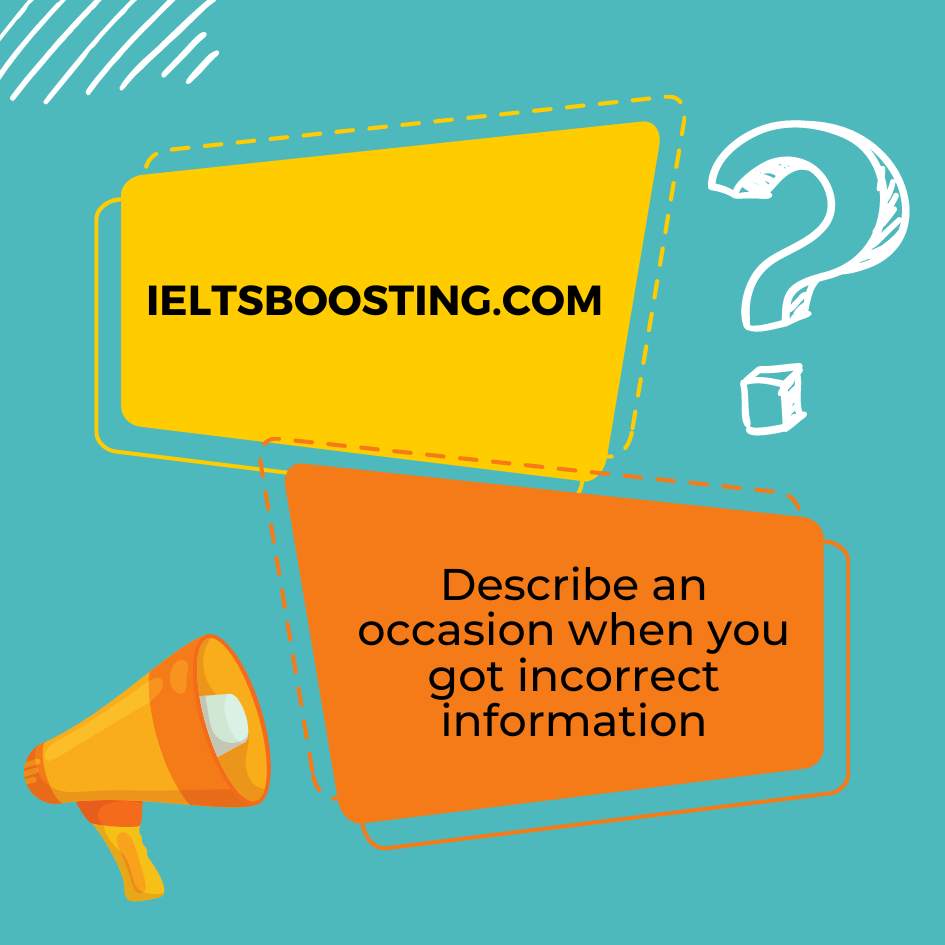Describe an occasion when you got incorrect information
You should say to describe an occasion when you got incorrect information
● When you got it
● How you got it
● How you found it was incorrect
● And how you felt about it
Sample answer to describe an occasion when you got incorrect information
I’d like to share a frustrating experience from my first year as a student when everything was overwhelming and new. The incident occurred during the week of final exams. We were in the midst of discussing the upcoming tests when my best friend since high school informed us that the test had been rescheduled for the following week. Initially, I felt relieved, thinking I had more time to prepare.
Three days later, while on campus, I ran into my professor who inquired about my preparation for the final test that week. I was taken aback and explained that I hadn’t prepared much as the test was rescheduled for the next week, or so I believed. It was then that he clarified that the test had not been postponed, leaving me in a state of surprise.
Realizing I had been given incorrect information, I had to cram as much information as possible for the test the next day. Fortunately, I managed to pass, but the experience left me frustrated. Had I known the accurate test date, I would have had more time to adequately prepare. It taught me the importance of verifying information from reliable sources and not solely relying on hearsay, especially during crucial academic moments
Explore more: ielts speaking part 2

describe an occasion when you got incorrect information
Part 3-Describe an occasion when you got incorrect information
Why don’t people trust information on the Internet?
What jobs provide information to others?
There are quite a few jobs where providing information is key. Journalists, for instance, play a crucial role in gathering and disseminating news to the public, keeping everyone informed about current events. Then there are teachers, who impart knowledge and skills to students, shaping the minds of future generations. And let’s not forget librarians, who help people navigate through vast amounts of information and find exactly what they need.
Advanced Vocabulary:
- Disseminating: Spreading or distributing information widely.
- Impart knowledge: To give information, understanding, or insight.
Phrase Verb:
- Navigate through: To find one’s way in a complex environment or situation.
What’s the difference between e-mail and phone in terms of providing information?
E-mail and phone are both popular communication tools, but they serve different purposes when it comes to sharing information. With e-mail, you’ve got the advantage of drafting detailed messages that recipients can read and respond to at their convenience, making it great for sending documents or lengthy information. Phone calls, on the other hand, are all about immediate interaction, perfect for quick updates or clarifying details in real-time.
Advanced Vocabulary:
- Immediate interaction: Direct and instant communication or engagement.
- Clarifying details: Making information clear or easier to understand.
Phrase Verb:
- Respond to: To reply or answer.
Which do you think is the better way to provide information, by phone or by email?
Choosing between phone and email really depends on the situation and what kind of information you’re sharing. Email is great for when you need to provide detailed information or documentation, as it allows for clear, written records that can be referred back to. On the other hand, phone calls are ideal for quick, direct communication, especially when immediate feedback or clarification is needed.
Advanced Vocabulary:
- Immediate feedback: Instant response or reaction to a statement or question.
- Clarification: The act of making something clearer or easier to understand.
Phrase Verb:
- Referred back to: To look at or check something again for information or confirmation.
How do people judge the accuracy of information?
People usually judge the accuracy of information by first looking at the source – if it’s from a well-known and trusted outlet, it’s often deemed more credible. They also cross-check facts with other reliable sources, which is a smart way to weed out any misinformation. Plus, they’ll consider the evidence supporting the information, like data or research, to see if it all adds up logically.
Advanced Vocabulary:
- Misinformation: False or inaccurate information, especially that which is deliberately intended to deceive.
- Credible: Able to be believed; convincing.
Phrase Verb:
- Weed out: To remove or eliminate something unwanted or undesirable.
How do people make sure they’re getting the right information?
To make sure they’re getting the right information, people often cross-reference multiple sources, ensuring that the data aligns and is consistent across different platforms. They also look for evidence and factual backing, like statistics or research studies, which lend credibility to the information. Additionally, many turn to trusted experts or authorities in the field, who can provide insights based on their expertise and knowledge.
Advanced Vocabulary:
- Cross-reference: To compare and check the accuracy or consistency of information from different sources.
- Credibility: The quality of being trusted and believed in.
Phrase Verb:
- Turn to: To seek information, help, or advice from someone or something.


